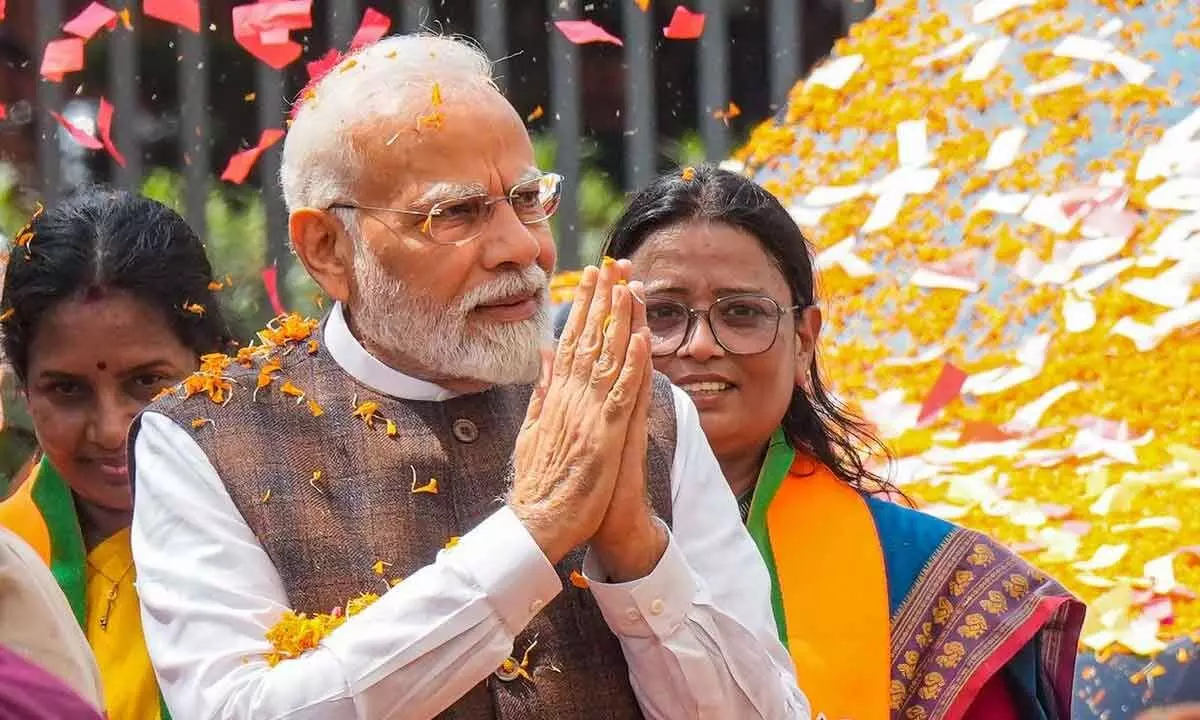Modi terms strong Centre made women’s bill possible
As the government worked to empower women with a slew of schemes and other measures before making a move on the bill
image for illustrative purpose

Prime Minister Narendra Modi asserted on Friday that a decisive and stable government enjoying a strong majority at the Centre made the passage of the women’s reservation bill in Parliament possible after it was left hanging for close to three decades.
Addressing an event organised by the BJP’s ‘Mahila Morcha’ to felicitate him for the passage of the bill, he said it is no ordinary legislation but is the declaration of the new democratic commitment of a new India. In a jibe at regional parties such as Bihar’s Rashtriya Janata Dal (RJD) and Uttar Pradesh’s Samajwadi Party, he said even those who had torn the previous bills seeking reserved seats for women in legislatures had to support the proposed law this time due to the emergence of women power in the last one decade of his government.
Before making a move on the bill, his government worked to empower women with a slew of schemes and other measures and strengthened them, Modi said, noting that every party had to support it. “We took decisions for the betterment of women at all levels and did not let anyone’s political interest become a roadblock in the way of women’s reservation. Earlier, whenever such a bill came in Parliament, only formalities were done and committed efforts were not made. Attempts to insult women were also made,” the prime minister said.
Attacking those, including some Opposition MPs in Parliament, who questioned the use of ‘Nari Shakti Vandan’ terminology by the government for the bill, he asked should not women of the country be paid obeisance and their honour enhanced. The BJP is set to make the passage of the bill a major talking point of its poll campaign for the five State elections expected in November-December and the Lok Sabha elections likely in April-May next year; more so as those women voters who are persuaded by the welfare factor rather than social fault lines are seen to have emerged as an important voting bloc in recent years.

